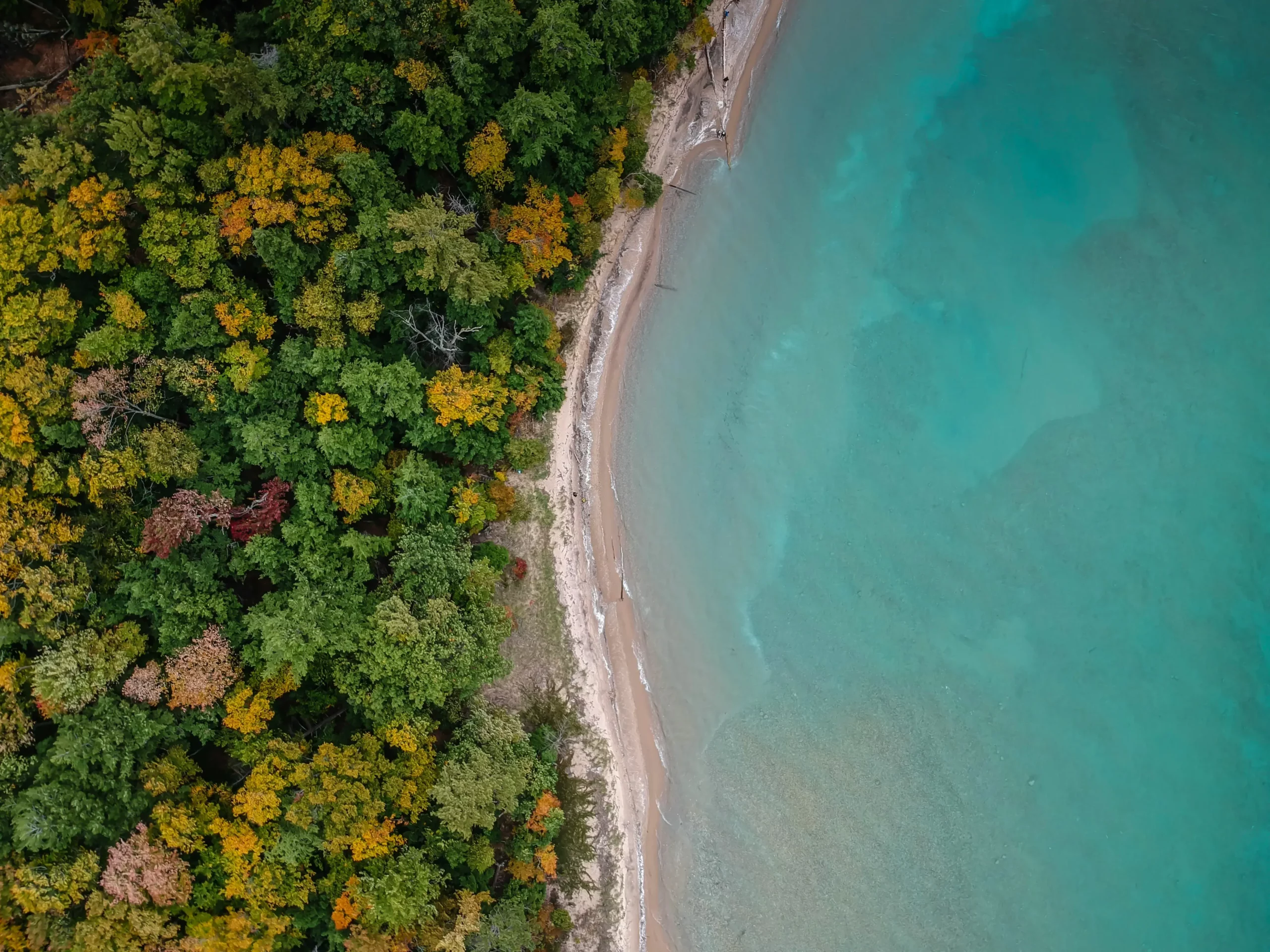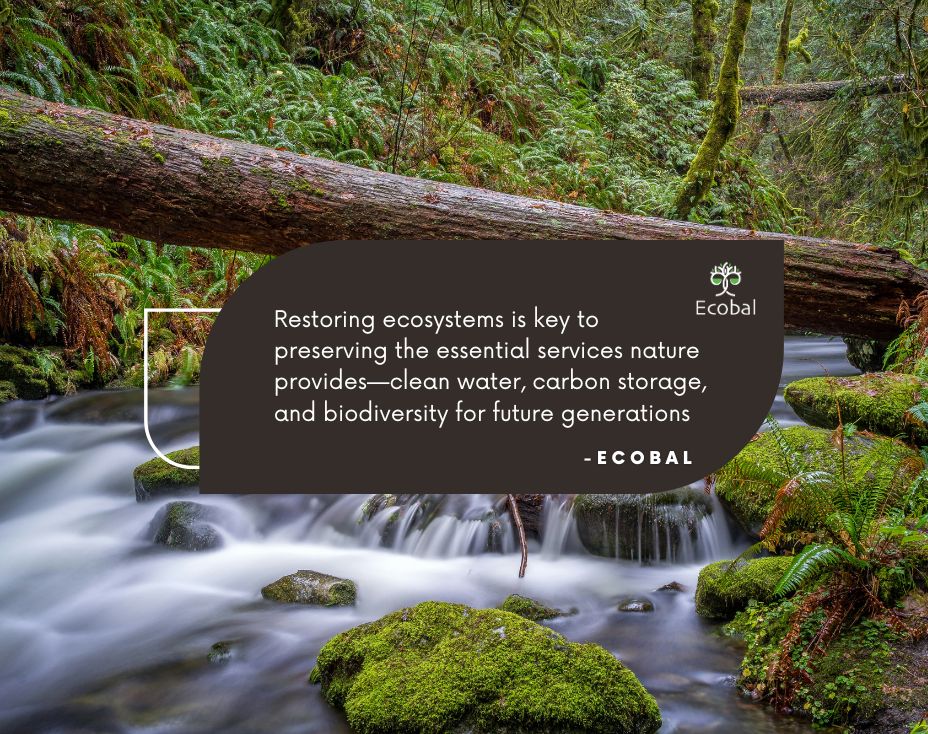Ecosystem Services: Emphasizing the Vital Benefits that Nature Offers
Ecosystem services are the invaluable processes and outputs provided by nature that sustain human life and well-being. These services stem from the diverse ecosystems on our planet, including terrestrial, marine, freshwater, forest, and grassland ecosystems. An ecosystem is a dynamic community of living organisms—such as microorganisms, plants, and animals—interacting with their non-living environment, such as water, air, and soil. These interactions play a crucial role in maintaining ecosystem stability and human health. From clean air to drinking water, nature offers services that are critical to our survival.
Ecosystem services are categorized into four primary types: provisioning, regulating, cultural, and supporting. Each category provides vital benefits that enhance both environmental and human health. Here’s a detailed breakdown of these ecosystem services and their significance:

1. Provisioning Services
Provisioning services refer to the tangible products obtained from ecosystems, including food, fresh water, wood, fiber, genetic resources, and medicines.
- Food: Natural ecosystems supply food through fisheries, wild-harvested plants, and forests that provide fruits, nuts, and mushrooms. Oceans and rivers, for example, are major sources of fish that support human diets.
- Fresh Water: Rivers, lakes, and aquifers provide clean, drinkable water. Ecosystems such as wetlands and forests help maintain water quality by filtering pollutants (UNEP – Fresh Water).
- Timber and Fiber: Forests provide essential resources such as wood for construction, paper, and fuel. Additionally, plants like cotton and hemp are sources of fibers used in textiles.
- Medicinal Resources: Many pharmaceutical compounds originate from plants, animals, and microorganisms found in ecosystems. For example, the rosy periwinkle plant provides compounds used to treat cancer (WWF – Nature’s Medicine).

2. Regulating Services
Regulating services are the benefits ecosystems provide through regulating environmental processes. These services help maintain environmental quality and climate stability.
- Climate Regulation: Forests, oceans, and soils absorb CO2, helping mitigate climate change. The Amazon rainforest, for instance, acts as a significant carbon sink, reducing the levels of this greenhouse gas in the atmosphere.
- Air Quality Maintenance: Plants improve air quality by absorbing pollutants like sulfur dioxide (SO2) and nitrogen dioxide (NO2), and producing oxygen. Green spaces in urban areas reduce smog and heat (One Tree Planted – Trees and Air Quality).
- Water Purification: Wetlands and forests naturally filter pollutants, improving water quality. For example, wetlands trap sediments and break down harmful chemicals, preventing them from contaminating rivers and lakes (Vermont DEC – Water Quality).
- Flood Control: Ecosystems such as mangroves and wetlands help absorb excess water, reducing the risk of floods. Mangrove forests also protect coastlines from storm surges (Mangrove Alliance – Storm Surge Reduction).
3. Cultural Services
Cultural services refer to the non-material benefits ecosystems provide through recreation, aesthetic enjoyment, spiritual enrichment, and education.
- Recreation and Tourism: Natural landscapes, such as beaches, mountains, and forests, offer spaces for outdoor activities like hiking, birdwatching, and camping, contributing to the well-being of individuals and economies (CBI – Nature Tourism).
- Spiritual and Religious Value: Many cultures hold natural environments in high spiritual regard. For instance, the Ganges River in India is sacred in Hinduism, and the Maasai people of East Africa have deep cultural connections with the savannah (Sacred Waters of the Ganges).
- Aesthetic and Inspirational Value: Nature inspires art, literature, and human creativity. The beauty of landscapes has long been a source of inspiration for human expression (Creative Inspiration in Nature).
4. Supporting Services
Supporting services are necessary for the production of all other ecosystem services. They include processes such as nutrient cycling, soil formation, and habitat provision.
- Nutrient Cycling: Ecosystems recycle essential nutrients like nitrogen, phosphorus, and carbon, ensuring their availability for plant and animal growth. Decomposers, such as bacteria and fungi, break down dead organic matter, returning nutrients to the soil (Nutrient Cycling).
- Pollination: Pollinators such as bees, birds, and butterflies play a crucial role in the reproduction of plants, including crops, ensuring food production (Smithsonian – Pollination).
- Habitat Provision: Ecosystems like coral reefs and forests provide habitats for diverse species. Coral reefs, for instance, support a wide range of marine life (NOAA – Coral Reef Ecosystems).
Why It Matters for Ecobal
At Ecobal, we are committed to transforming former agricultural and barren lands into thriving ecosystems that provide a full range of ecosystem services, from provisioning to supporting services. By integrating cutting-edge technologies such as ultra-fast CO2 hydrate formation, we ensure that our projects not only sequester CO2 but also contribute to the sustainable restoration of ecosystems.
Ecobal’s Mission includes:
- Raising awareness and certifying the ecological health of rural and natural landscapes.
- Monetizing ecosystem services to demonstrate the economic value of nature.
- Using natural ecosystems as efficient carbon sinks for CO2 sequestration.
- Managing soil health through the restoration of soil microbiota and fauna.
- Restoring biodiversity through the conservation of native species.
By ensuring the continuity of these vital ecosystem services, Ecobal contributes to a healthier, more resilient future for both nature and people.
About the Author:
This article is written by Dr. Amisalu Milkias, Ecobal’s CO2 Project Specialist. Dr. Amisalu’s work focuses on integrating cutting-edge solutions to enhance biodiversity and ecosystem services through carbon sequestration projects.


